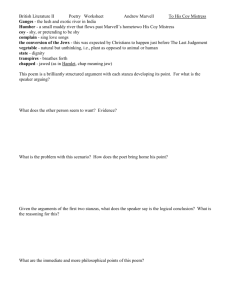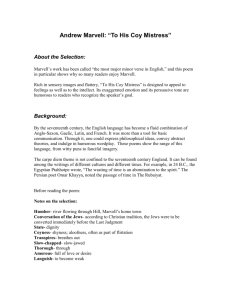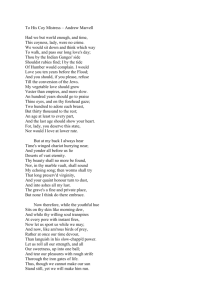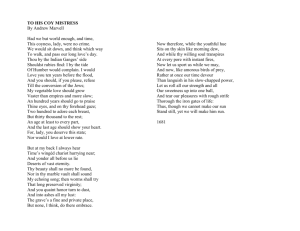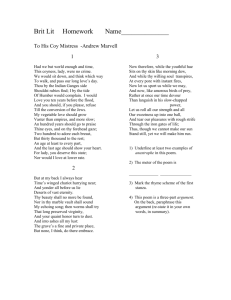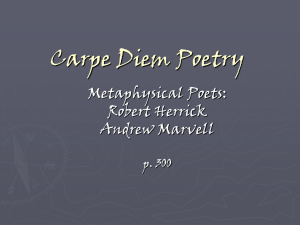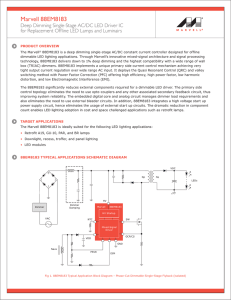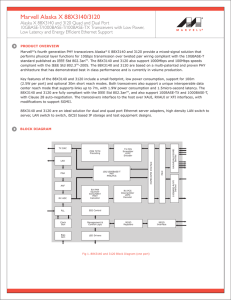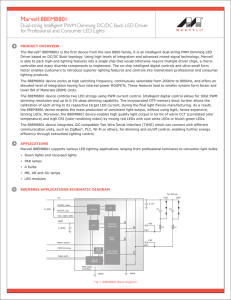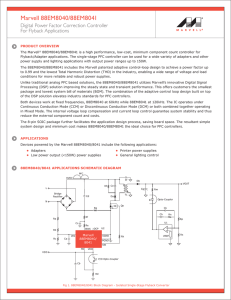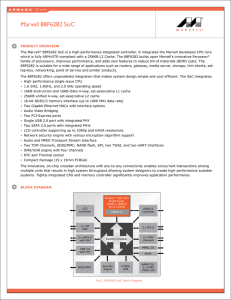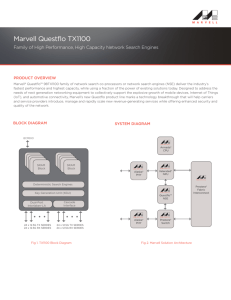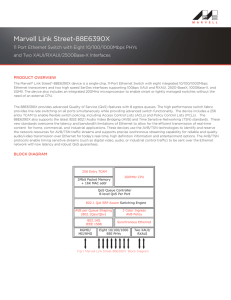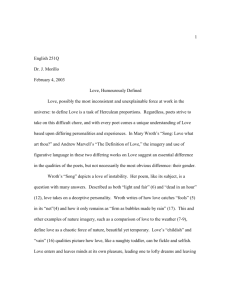To His Coy Mistress by Andrew Marvell Had we but world enough
advertisement
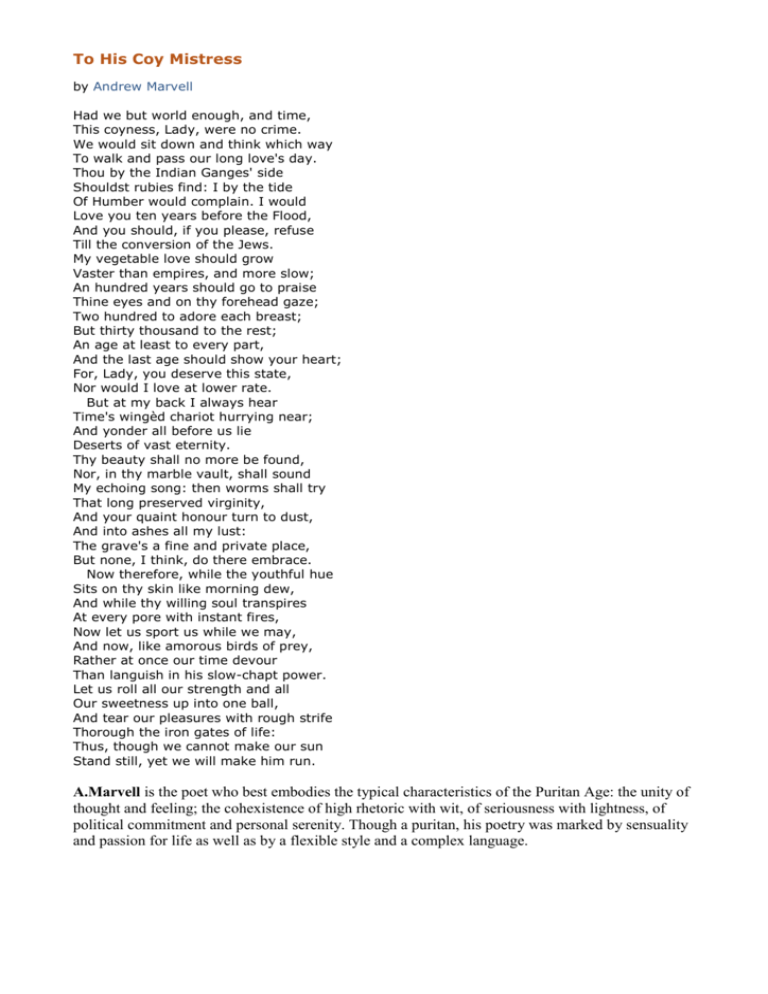
To His Coy Mistress by Andrew Marvell Had we but world enough, and time, This coyness, Lady, were no crime. We would sit down and think which way To walk and pass our long love's day. Thou by the Indian Ganges' side Shouldst rubies find: I by the tide Of Humber would complain. I would Love you ten years before the Flood, And you should, if you please, refuse Till the conversion of the Jews. My vegetable love should grow Vaster than empires, and more slow; An hundred years should go to praise Thine eyes and on thy forehead gaze; Two hundred to adore each breast; But thirty thousand to the rest; An age at least to every part, And the last age should show your heart; For, Lady, you deserve this state, Nor would I love at lower rate. But at my back I always hear Time's wingèd chariot hurrying near; And yonder all before us lie Deserts of vast eternity. Thy beauty shall no more be found, Nor, in thy marble vault, shall sound My echoing song: then worms shall try That long preserved virginity, And your quaint honour turn to dust, And into ashes all my lust: The grave's a fine and private place, But none, I think, do there embrace. Now therefore, while the youthful hue Sits on thy skin like morning dew, And while thy willing soul transpires At every pore with instant fires, Now let us sport us while we may, And now, like amorous birds of prey, Rather at once our time devour Than languish in his slow-chapt power. Let us roll all our strength and all Our sweetness up into one ball, And tear our pleasures with rough strife Thorough the iron gates of life: Thus, though we cannot make our sun Stand still, yet we will make him run. A.Marvell is the poet who best embodies the typical characteristics of the Puritan Age: the unity of thought and feeling; the cohexistence of high rhetoric with wit, of seriousness with lightness, of political commitment and personal serenity. Though a puritan, his poetry was marked by sensuality and passion for life as well as by a flexible style and a complex language. Comprehension The poem can be divided into three parts: 1. Had we …. 2. But at my back … 3. Now therefore … Explain the poet’s argument in three short paragraphs. Sound Patterns Identify the rhyme scheme of the poem and count the syllables in each line. What kind of line does Marvell use? Find example of run-on-lines. How do they affect the rhythm and tone of the poem? Language and Meaning Find references to time and space in ll1-20. What do they suggest? The poet lists his mistress’s charms. Do they convey a spiritual or physical idea of love? Analyse the images connected with death. What aspect of death is being described? Focus on the verbs used in ll. 33-46. Are they static or dynamic? What idea do they convey? Say how the last part contrasts with the previous two. Marvell uses the typical metaphysical devices: paradox, hyperbole and conceit (unexpected comparison). Find one example of each. Consider the last couplet. Think of what is the sun usually associated with and say what it suggests here. What may Marvell have meant with “we will make him run”? How would you describe the tone and style of the poem? Choose from the alternatives below and say if they apply to different parts of the poem. witty urgent optimistic pessimistic energetic desperate seductive sensual crude vulgar serious intellectual elegant eloquent threatening The theme of the poem is the traditional motif “seize the day” or “carpe diem” of which Horace was the classical model. Marvell’s originality lies in teh coexistence of sensuality and passion with seriousness and sadness. Time and death are the themes of much of Elizabethan and 17th century poetry. What can conquer them according to Shakespeare, Donne and Marvell? Marvell x me Marvell is the poet who best embodiesthe typical charactgeristics of the Puritan Age: the unity of thought and feeling; the cohexistence of high rhetoric with wit, of seriousness with lightness, of political commitment and personal serenity. Though a puritan, his poetry was marked by sensuality and passion for life as well as by a flexible style and a complex language.
